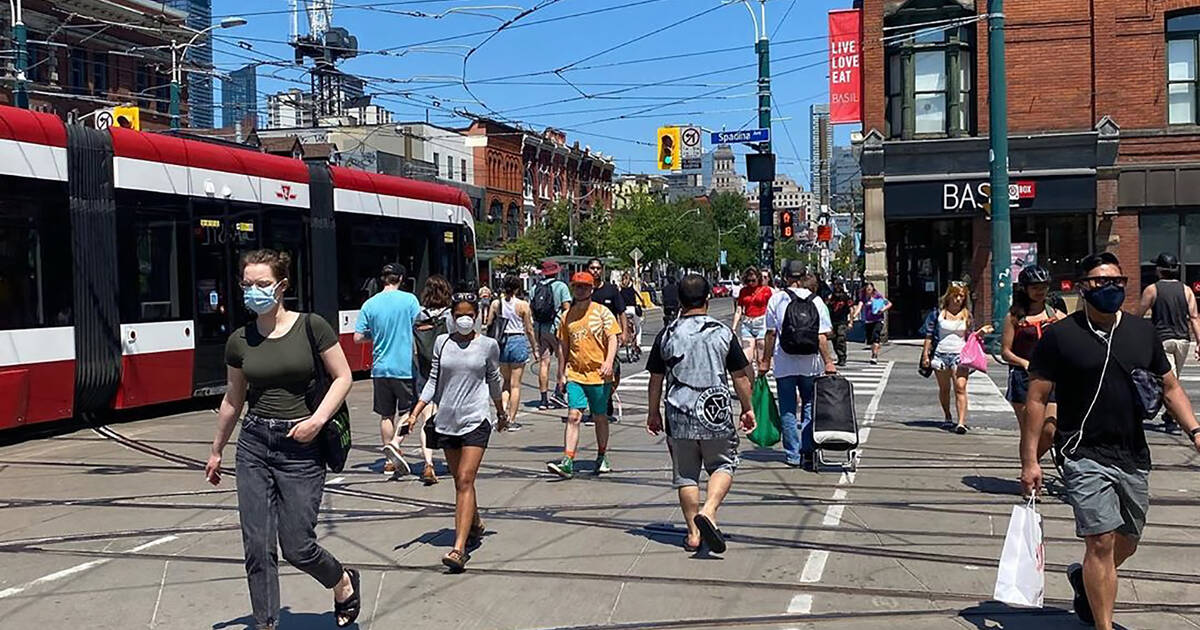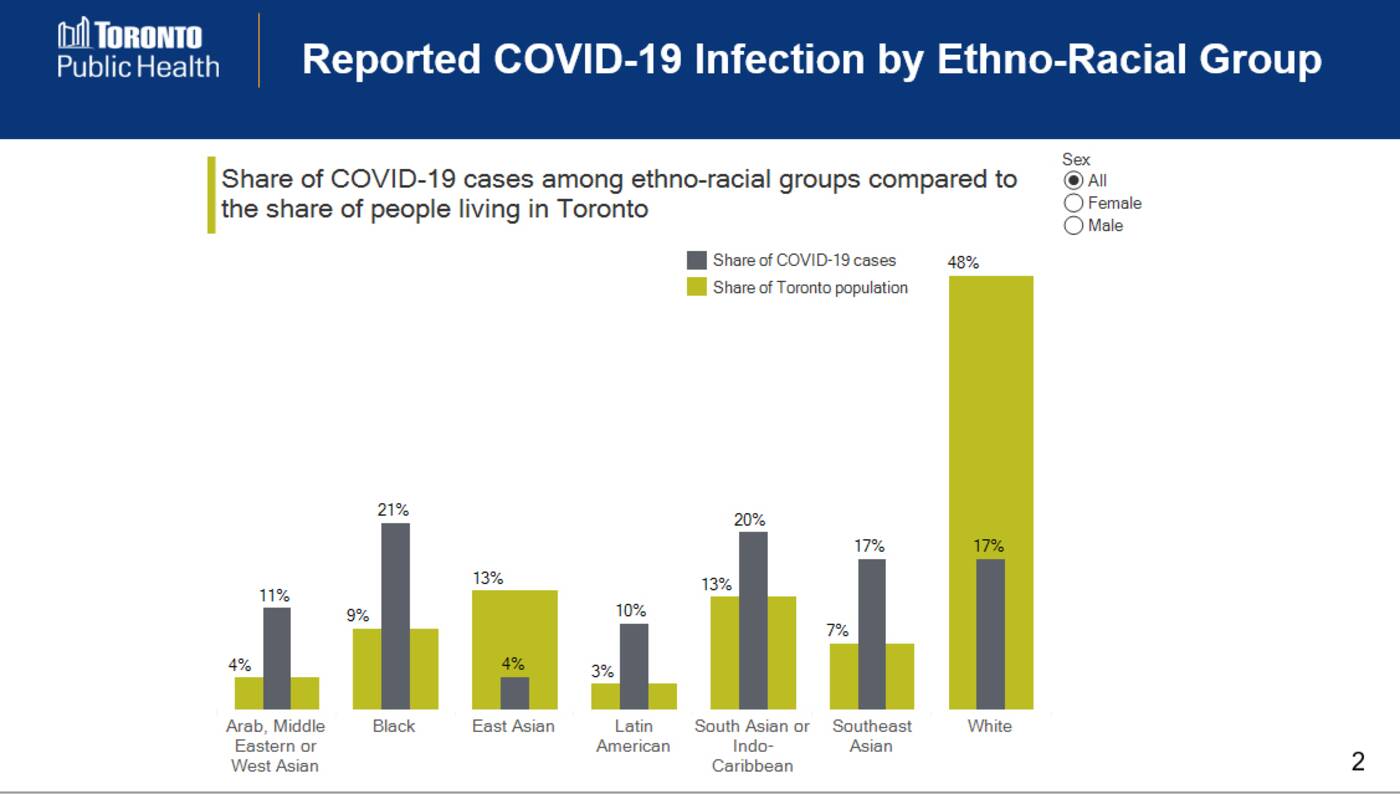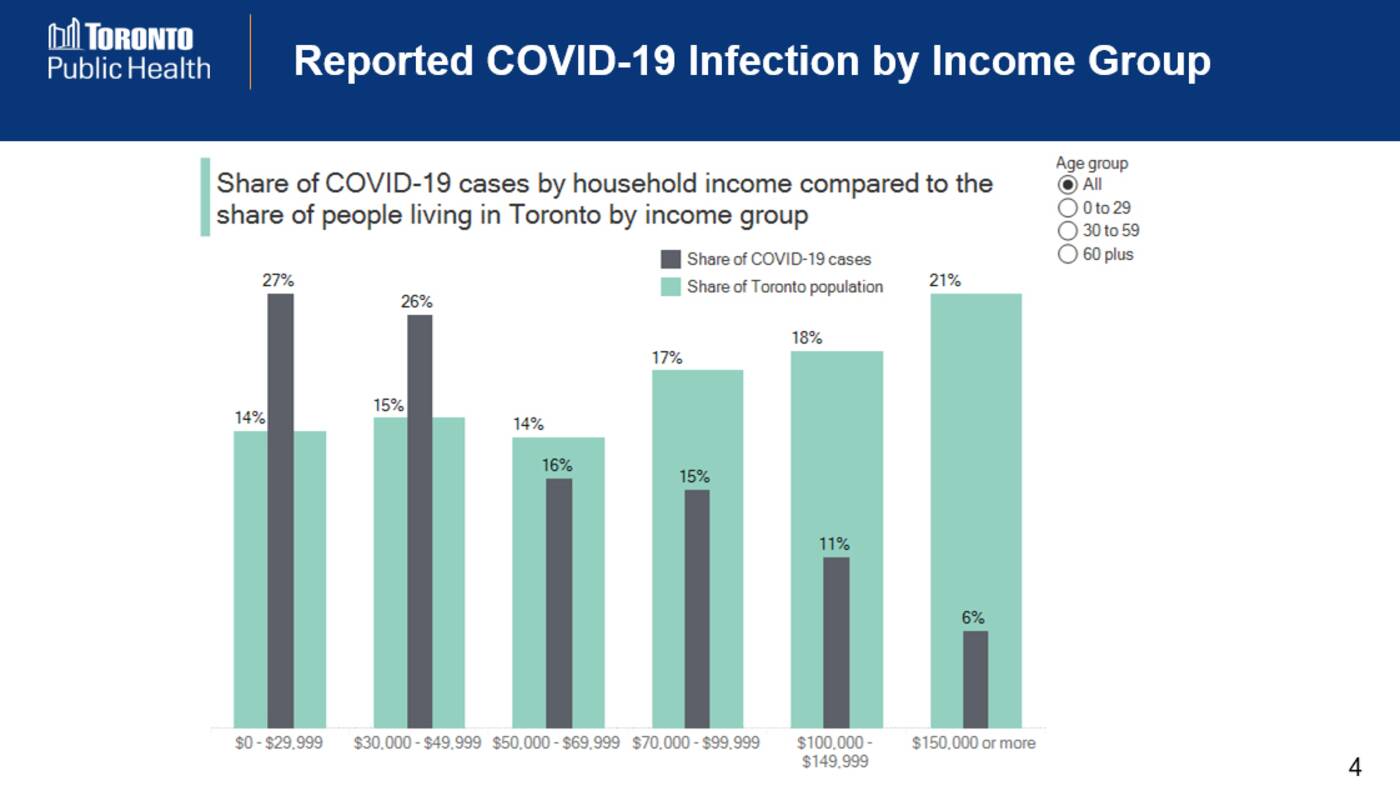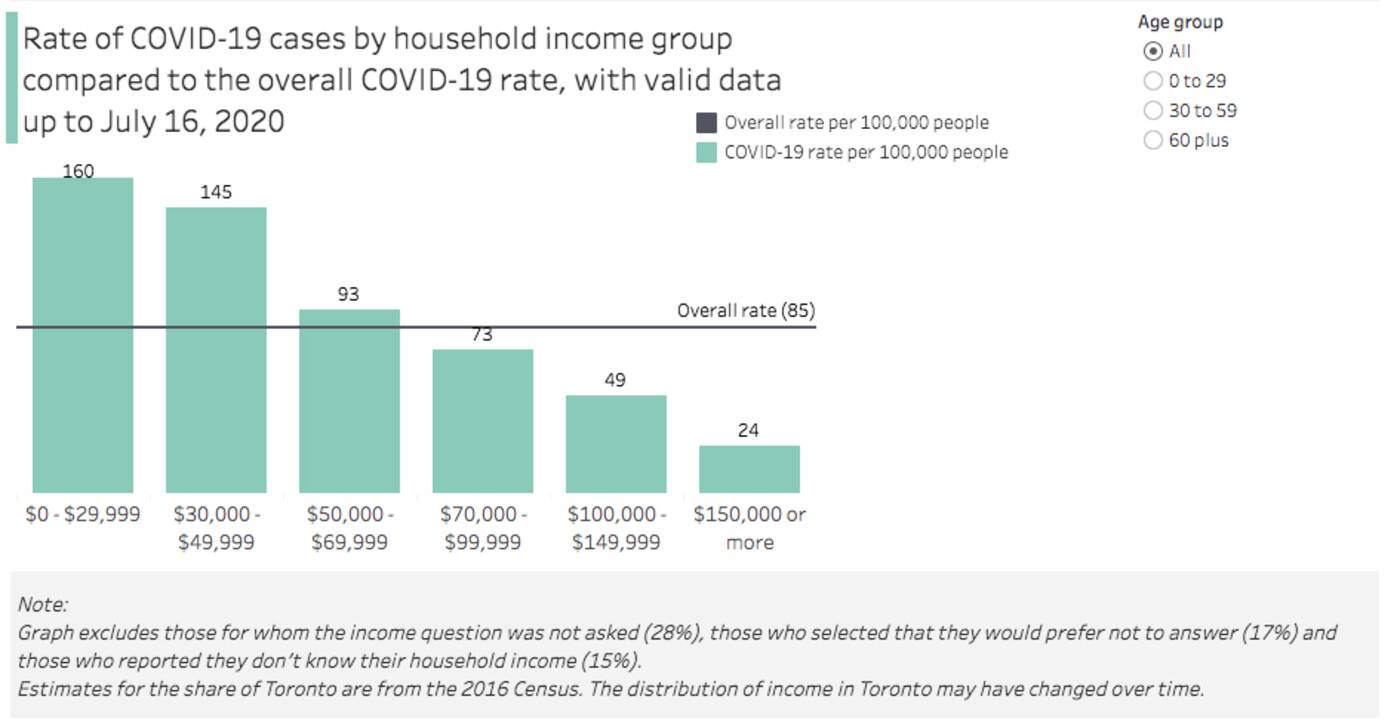
A sobering new data set released by the City of Toronto proves definitively what experts have been saying for months about the COVID-19 pandemic: People of colour and people from low-income households have been disproportionately infected.
Despite making up just 52 per cent of Toronto's population, people who identify as belonging to a racialized group account for a whopping 83 per cent of all COVID-19 infections within the city.
Roughly 51 per cent of all cases have been confirmed in residents of lower-income households who, according to Medical Officer of Health Dr. Eileen de Villa, make up just 30 per cent of all Torontonians.
People who identify as Black make up the highest proportion of any racial group listed in the 2016 federal census for COVID-19 cases in Toronto.
These are but a few of the key takeaways from today's data drop, made possible through the important work of Toronto Public Health (TPH) and individual Toronto residents who shared their experiences in an effort to help identify sociodemographic trends in the context of this unprecedented pandemic.

Image via Toronto Public Health's "COVID-19 infection in Toronto: Ethno-racial identity and income" report.
"Given Toronto’s racial diversity, large number of newcomers, and high proportion of people living with lower-income, Toronto Public Health (TPH) launched important work to understand if Toronto residents were also inequitably affected by COVID-19," reads a press release from the city, issued following a somber press conference revealing the findings.
"TPH added socio-demographic questions to the case follow-up process to better understand and strengthen capacity to address whether or not COVID-19 may be disproportionately affecting certain people in our city."
All of the data was collected from people with confirmed cases of COVID-19 in Toronto, all of whom answered questions voluntarily.
While TPH admits that "there are some limitations with these data," the findings are being reported as overall summaries and trends to provide insight into how COVID-19 is impacting our community — or as it were, disproportionately impacting specific parts of our community.

Image via Toronto Public Health's "COVID-19 infection in Toronto: Ethno-racial identity and income" report.
Approximately 27 per cent of all people diagnosed with COVID-19 between May 20 and July 16, when information for the first report was collected, did not provide socioeconomic data to TPH, in some cases because they were too ill to respond. Data was furthermore not collected among patients in long-term care homes or patients who identify as Indigenous Canadians.
Public health officials were able to glean some important information, nonetheless, which they intend to use not only in response to the COVID-19 pandemic.
"To put it plainly: COVID-19 is preying on the inequalities in our city," said Toronto Board of Health Chair and city councillor Joe Cressy of the findings.
"The data clearly shows that people who face systemic barriers are at far greater risk of contracting COVID-19, whether those barriers are poverty, racism, unequal access to services, or all of the above."
"This data clearly shows that we need long-term policy changes, from all 3 levels of government, to fundamentally address poverty, housing stability, and structural racism," Cressy continued. "That's the only way to truly defeat this pandemic."
The data shows a clear declining step pattern in rates of COVID-19 proportionate to household income. Image via City of Toronto.
"While COVID-19 has affected all of us, unfortunately it has had a greater impact on those in our community who face greater health inequities," said de Villa on Thursday similarly.
"As we continue to expand our understanding of this virus and how it has impacted our residents, the pandemic has also highlighted existing issues related to the social determinants of health that need to be better addressed. I look forward to working with our health system, community and government partners on actions to keep all of our residents as healthy as possible."
A brief from TPH introducing the findings admit that, while this data does not tell the whole story, it does "suggest possible inequities related to who is becoming infected with and hospitalized for COVID-19 in Toronto."
"To help understand these disparities further, TPH is beginning to collect information on select sociodemographic characteristics directly from people who test positive for COVID-19... This document provides a brief snapshot of our process and findings to date."
You can explore the data yourself, breaking it down by rate, proportion and gender if you so choose, right here.
by Lauren O'Neil via blogTO

No comments:
Post a Comment